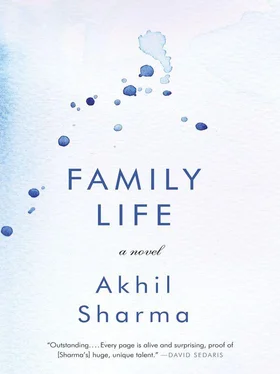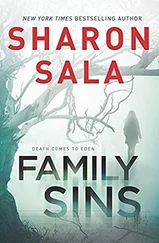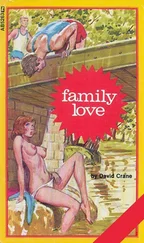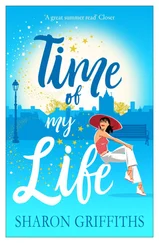I sat hidden on the floor behind my bed and began reading. I started with the first book that he had published. The stories bored me. When I read the one about the mules having their knees broken and being thrown off a pier in a besieged city, I felt nothing. I understood from what I had read that the plainness of the writing was supposed to let the reader form his own response. To me, though, the mules didn’t feel real and neither did the pier. Till then I had only read about Hemingway — never anything by him. I had been afraid to do so because what would happen if I didn’t like him? Reading the stories, I became afraid that I might have wasted all the time that I had spent with the critical essays. Surely my not liking the stories showed some failure in me.
I began to take notes as I read. Doing something while reading reduced my anxiety at not being interested. I started counting the number of words in each sentence. On top of each sentence, I wrote a 3 or 5 or 7 in blue ink. Because I knew “and” was an important word in Hemingway’s sentences, I circled each “and.” Every page I read became crowded with blue writing.
I started The Sun Also Rises . When there were stretches of dialogue and the page looked bare, I circled the “he said,” “she said,” or wrote “no dialogue label.”
I got to the end of the first chapter and began reading it again. A quarter of the way into the book, I started to respond in the ways that I thought Hemingway had wanted his readers to react. At one point in the novel, a burly wealthy man lifts up his shirt to show scars from arrow wounds. I had read an essay about this character. Because the essay had told me what I should feel, I felt it — a sense of the two main characters of the novel being shoved to the side of the story by a character whose world is so much larger than theirs. The change in perspective was a physical sensation, like standing up suddenly and becoming light-headed and the room pulling away.
As I kept reading Hemingway, who seemed to so value suffering in silence, I began to see my family’s pain as belonging in a story. In the morning, watching my father bathe Birju, I fantasized about writing how my father’s pajamas grew wet and translucent until I could see through to his underwear. At the idea of writing sentences that contained our suffering, I experienced both the triumph that I had felt when I told Jeff and Michael Bu about Birju, and also a sort of detachment, like I was watching my own life.
Other things in my life, though, were too undignified and strange to be converted into literature. A housing development was being built a few blocks away, with frames of yellow two-by-fours and lawns of orange dirt. A few houses were nearly complete. These had For Sale signs before them, and their lawns were newly covered in rectangles of sod. Often, either because my father did not believe that grass could be considered property or because he did not wish to believe this, he drove to the houses and stole their grass. He tore the sod off the ground and put it into the back of our silver station wagon and brought it home. As he placed these pads all over our lawn, my mother came out and shouted at him that at least he should be smart and do this at night.
After four or five months of reading Hemingway, I decided to write a story. I had in the past written stories for English classes. These had all been about white people, because white people’s stories seemed to matter more. Also, I hadn’t known how to write about Indians. How would I translate the various family relations, the difference between an uncle who is a father’s brother and an uncle who is a mother’s brother? Having read Hemingway, I knew that I should just push all the exotic things to the side as if they didn’t matter, that this was how one used exoticism — by not bothering to explain.
The first story I wrote was about my brother coughing. I woke one night to the sound of Birju coughing downstairs and then could not go back to sleep. To be woken this way and not be able to return to sleep struck me as sad enough to merit a reader’s attention. Also, Hemingway had written a story about a man being woken because somebody is dying nearby, and the man is forced to witness the death.
I got up from my bed and turned on the light. I then returned to bed with a spiral-bound notebook and placed it against my knees. I began my story in the middle of the action the way Hemingway did. I wrote:
The coughing wakes me. My wife coughs and coughs, and then when her throat is clear, she moans. The nurse’s aide moves back and forth downstairs. The hospital bed jingles.
I wrote that it was a spouse coughing because that seemed something a reader could identify with, while a brother would be too specific to me.
I lie here, listening to my wife cough, and it is hard to believe that she is dying.
It was strange to write something down and for that thing to come into existence. The fact that the sentence existed made Birju’s coughing somehow less awful.
As I sat on my bed, I thought about how I could end my story. I held my pencil above the sheet of paper. According to the essays I had read on Hemingway, all I needed to do was attach something to the end of the story that was both unexpected and natural.
I imagined Birju dying; this had to be what would eventually happen. As soon as I imagined this, I did not want him gone. I felt a surge of love for Birju. Even though he was sick and swollen, I did not want him gone. I wrote:
I lie in my bed and listen to her cough and am glad she is coughing because this means she is alive. Soon she will die, and I will no longer be among the lucky people whose wives are sick. Fortunate are the men whose wives cough. Fortunate are the men who cannot sleep through the night because their wives’ coughing wakes them.
Writing the story changed me. Now I began to feel as if I were walking through my life collecting things that could be used later: the sound of a Ping-Pong ball was like a woman walking in high heels, the shower running was like television static. Seeing things as material for writing protected me. When a boy tried to start a fight by saying, “You’re vegetarian — does that mean you don’t eat pussy?” I thought this would be something I could use in a story.
At the end of ninth grade, as I was about to turn fifteen, I and ten other students had straight As. This meant that we were all ranked first in our class.
The day school ended, there was a carnival atmosphere. Students emptied their lockers into the hallways, throwing papers, magazine cutouts, and greeting cards all over the floors. In each classroom a sheet of paper was pinned to the bulletin board and typed on this were the names of those ranked first in their grade. Seeing my name in type made it feel like another person’s.
When I came home, my mother was exercising Birju, moving his arms up and down as if he were marching.
“Mommy,” I said, my hand on Birju’s foot because by showing respect I could make myself younger, “I’m ranked first in my class.”
“Very good,” my mother answered, continuing to pump Birju’s arms.
She didn’t say any more. I had been feeling proud as well as guilty, and now I felt a collapse. And then I became disgusted with myself for my vanity in wanting to be thought special when ten other children were also ranked first.
PEOPLE PHONED AND asked my mother if I could speak to their children. I remembered how the same thing had happened when Birju got into the Bronx High School of Science. I remembered my jealousy then. Now, talking on the phone to those children, it seemed to me that to be one among eleven students was nothing compared to Birju getting into his school after only a year and a half in America.
Читать дальше












